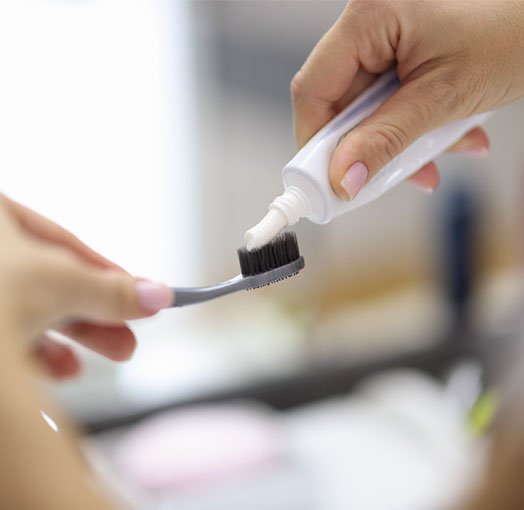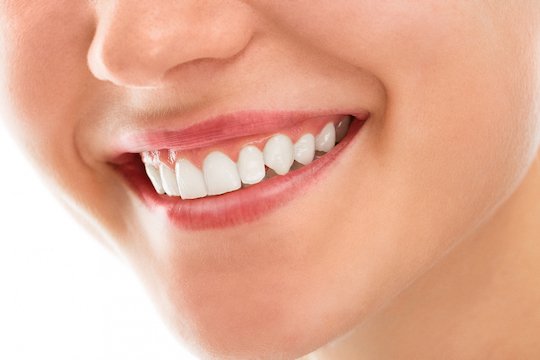Bleeding
Gums Treatment
CAUSES AND TREATMENT FOR BLEEDING GUMS
Bleeding Gums? Receding Gums?
If your gums bleed while brushing your teeth, it can be an early sign of gum disease.
Gum health is vital to overall good oral health; it is very important that you see your dentist.
Poor gum health can result in poor bone density, thus resulting in tooth loss. 1 in 5 Australians has gum related issues.
Early interventions through regular check-ups can save your natural tooth for life. Your Cheltenham dentist can help.


Bleeding Gums? Receding Gums?
If your gums bleed while brushing your teeth, it can be an early sign of gum disease.
Gum health is vital to overall good oral health; it is very important that you see your dentist.
Poor gum health can result in poor bone density, thus resulting in tooth loss. 1 in 5 Australians has gum related issues.
Early interventions through regular check-ups can save your natural tooth for life. Your Cheltenham dentist can help.

Dentist On Warrigal has an evidence-based program for periodontal treatments
Dentist On Warrigal, led by Dr Mini and Dr Franzmann, has created a program for periodontal treatments to help the local community by providing a proven solution for bleeding gums and other periodontal issues.
This program core treatments include:
- Screening
- Deep cleaning
- Root planing
- Gum graft
- Gingivectomy
Call us on (03) 9583 5506 to find out more.
Do you have bleeding gums?
Request your appointment today!
Causes of Bleeding Gums
The main cause of bleeding gums is plaque build-up at the gum line. This will lead to gingivitis or inflamed gums.
Unremoved plaque will harden into tartar and will lead to increased bleeding and a more advanced form of gum and jaw bone disease known as periodontitis.
Other causes of bleeding gums include:
- Bleeding disorders
- Brushing too hard
- Hormonal changes during pregnancy
- Ill-fitting dentures or other dental appliances
- Improper flossing techniques
- Infection (tooth or gum)
- Leukemia
- Scurvy (vitamin C deficiency)
- Use of blood thinners
- Vitamin K deficiency
Bleeding Gums Solution
Prevention
Prevention begins with good oral hygiene at home.
By flossing your teeth once daily and brushing them at least twice daily, you can significantly minimise your risk of developing gum disease. Keep your sugary drinks and snacks to a minimum and eat a balanced diet.
Schedule regular teeth cleaning visits — at least twice a year — to help keep your smile healthy.
These visits, and the periodontal examinations they include, are vital to maintaining your health and the health of your smile.
You don’t have to lose teeth to gum disease!


Prevention
Prevention begins with good oral hygiene at home.
By flossing your teeth once daily and brushing them at least twice daily, you can significantly minimise your risk of developing gum disease. Keep your sugary drinks and snacks to a minimum and eat a balanced diet.
Schedule regular teeth cleaning visits — at least twice a year — to help keep your smile healthy.
These visits, and the periodontal examinations they include, are vital to maintaining your health and the health of your smile.
You don’t have to lose teeth to gum disease!
Evidence-Based Program for Periodontal Treatments

Gum Disease Screening
To ensure oral health is maintained, regularly visit your periodontist in Cheltenham to undergo a periodontal screening.
A periodontal screening, coupled with a routine oral examination, can help detect and prevent gingivitis and periodontitis, both chronic inflammatory diseases.
This screening involves a thorough analysis of your gums (probing) and radiographs (X-rays) and may even involve questions related to your overall health or family history.
Deep Cleaning
If your periodontist diagnoses you with gum disease early, a deep cleaning (scaling and root planing) can reverse its effects. Your periodontist will remove plaque from your teeth and the pockets developed inside your gums using manual tools and ultrasonic vibrations.
Deep cleaning has two parts. Scaling is when your dentist removes all the plaque and tartar above and below the gumline, cleaning all the way down to the bottom of the pocket. Your Cheltenham dentist will then start root planing, smoothing out your teeth roots to help gums reattach to your teeth.
Root Planing
During the procedure, your Cheltenham dentist cleans deep below the gums to remove plaque and tartar build-up on the roots of teeth where the bones are affected by the infection. Planing involves the complete removal of cementum, which is the calcified film that covers a tooth’s root.
The procedure may also involve removing a small superficial layer of dentin, which is the second layer of teeth that develops below the enamel.
Gum Graft
A gum graft is performed to correct the effects of gum recession. It is a quick and relatively simple procedure in which your periodontist removes healthy gum tissues from the roof of the mouth and uses it to build the gum back where it has receded.
Gingivectomy
A gingivectomy is necessary when the gums have receded from the teeth creating deep pockets. The pockets make it hard to clean away plaque and calculus. Gingivectomy is usually done before gum disease has damaged the bone supporting the teeth.
The procedure involves removing and reshaping loose, diseased gum tissue to get rid of pockets between the teeth and gums. By removing the pocket walls, gingivectomy provides visibility and accessibility to remove calculus and thoroughly smooth the tooth roots. This creates a favourable environment for gingival healing and restoration of the gingival contour.
Frequently Asked Questions
What are the common signs and symptoms of periodontal disease?
In the first place, periodontal is a silent disease. If you have it, it may not show symptoms unless it’s at a very advanced stage.
However, it is possible to experience some signs and symptoms before it becomes advanced.
For example, gums can be tender or bleed while brushing and flossing. They can also appear swollen or red, give you bad breath, or cause receding gums.
Which nutrient deficiency causes bleeding gums?
Deficiency of Vitamin C and Vitamin K can cause bleeding gums.
How do I prevent gum disease, and can it be cured?
Regular toothbrushing helps to prevent gum disease by removing the plaque that causes it. Remember to:
- Brush your teeth and along the gumline twice a day – in the morning and before going to bed.
- Use a toothbrush with a small head and soft bristles, and fluoride toothpaste.
- Use floss, interdental brushes, or another tool recommended by a dentist or oral health professional to clean in between teeth. Plaque can easily build up on dentures, increasing the risk of gum disease around your natural teeth.
Other things that can help to prevent gum disease:
- Smoking cessation
- Keeping blood sugar levels well-controlled will help to reduce the risk of gum disease (for people with diabetes)
- Avoid sugary foods and drinks, especially between meals
- Drink plenty of water (fluoridated where possible)
What should I do if I have periodontal disease?
If you have periodontal disease, you may be referred to a periodontist for assessment and ongoing treatment of the gums.
Periodontists are gum specialists whose field of expertise is the prevention, diagnosis and treatment of periodontal disease and the placement of dental implants.
The treatments offered by a periodontist include deep/extensive cleaning, gum surgery, bone grafts or regeneration of the supporting tissue, and replacement of lost teeth with dental implants.
How can I avoid bleeding gums and pain when flossing?
Good oral hygiene habits like proper brushing twice a day, flossing once a day, using antibacterial mouthwash and visiting the dentist every six months.
